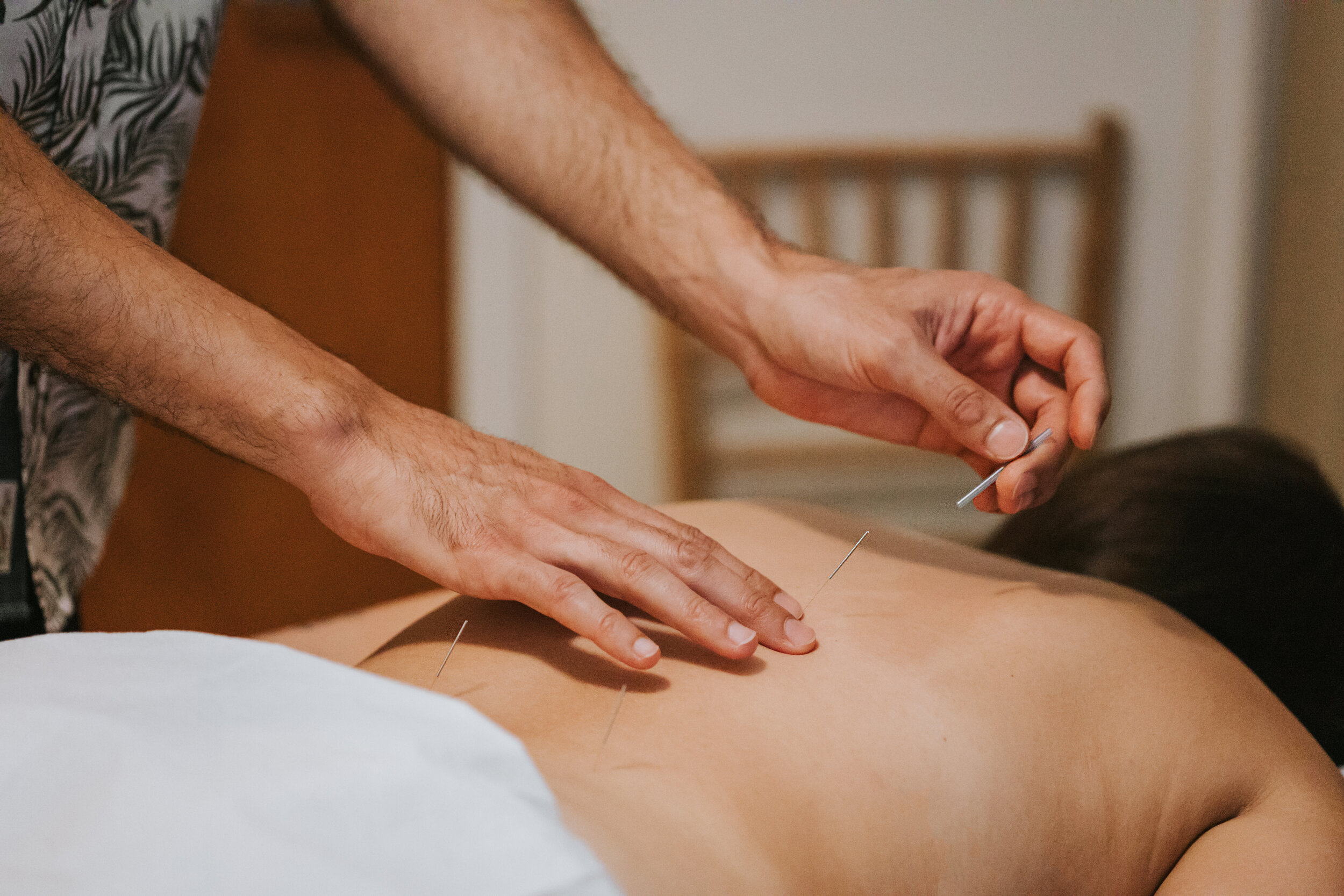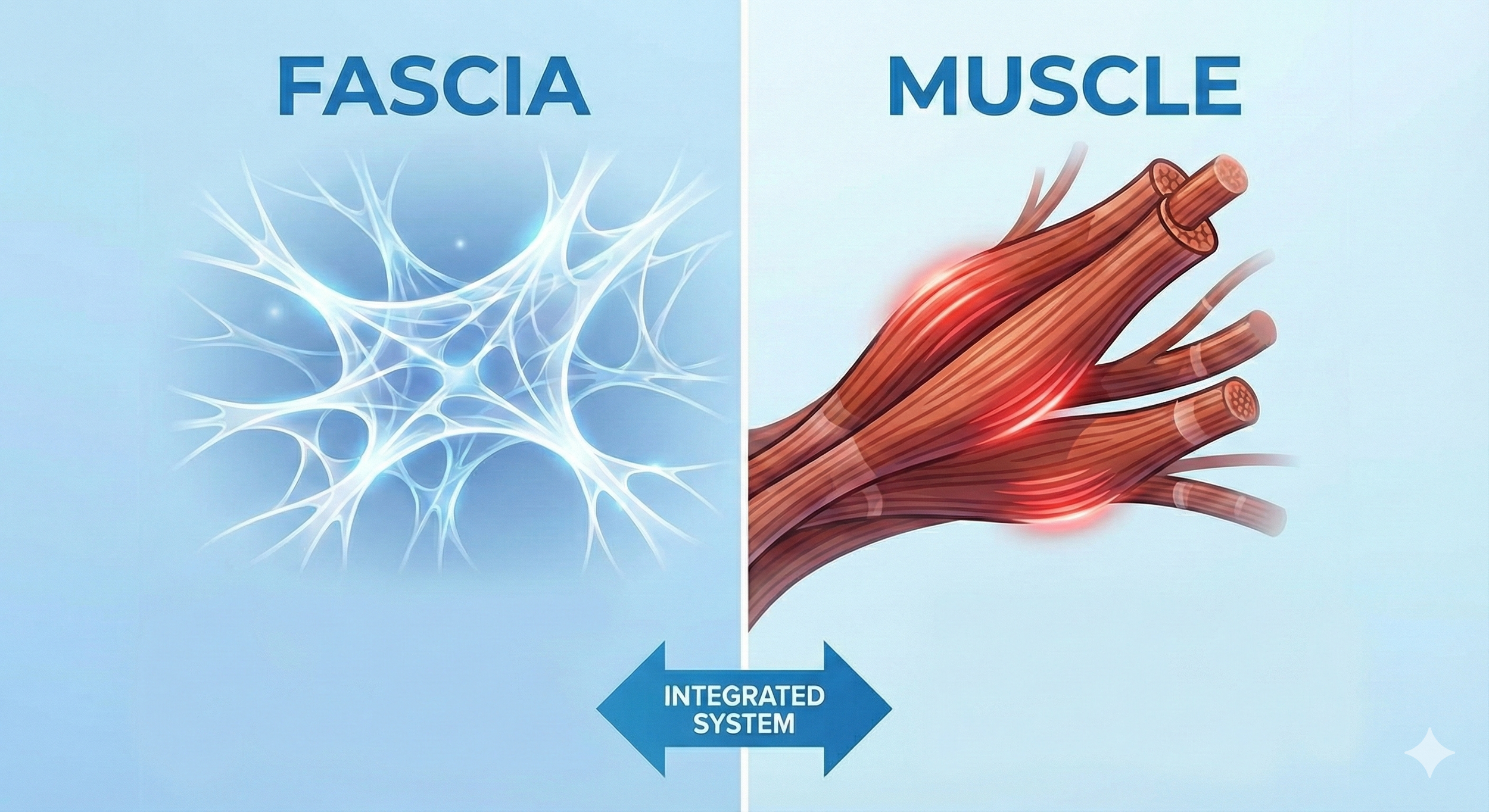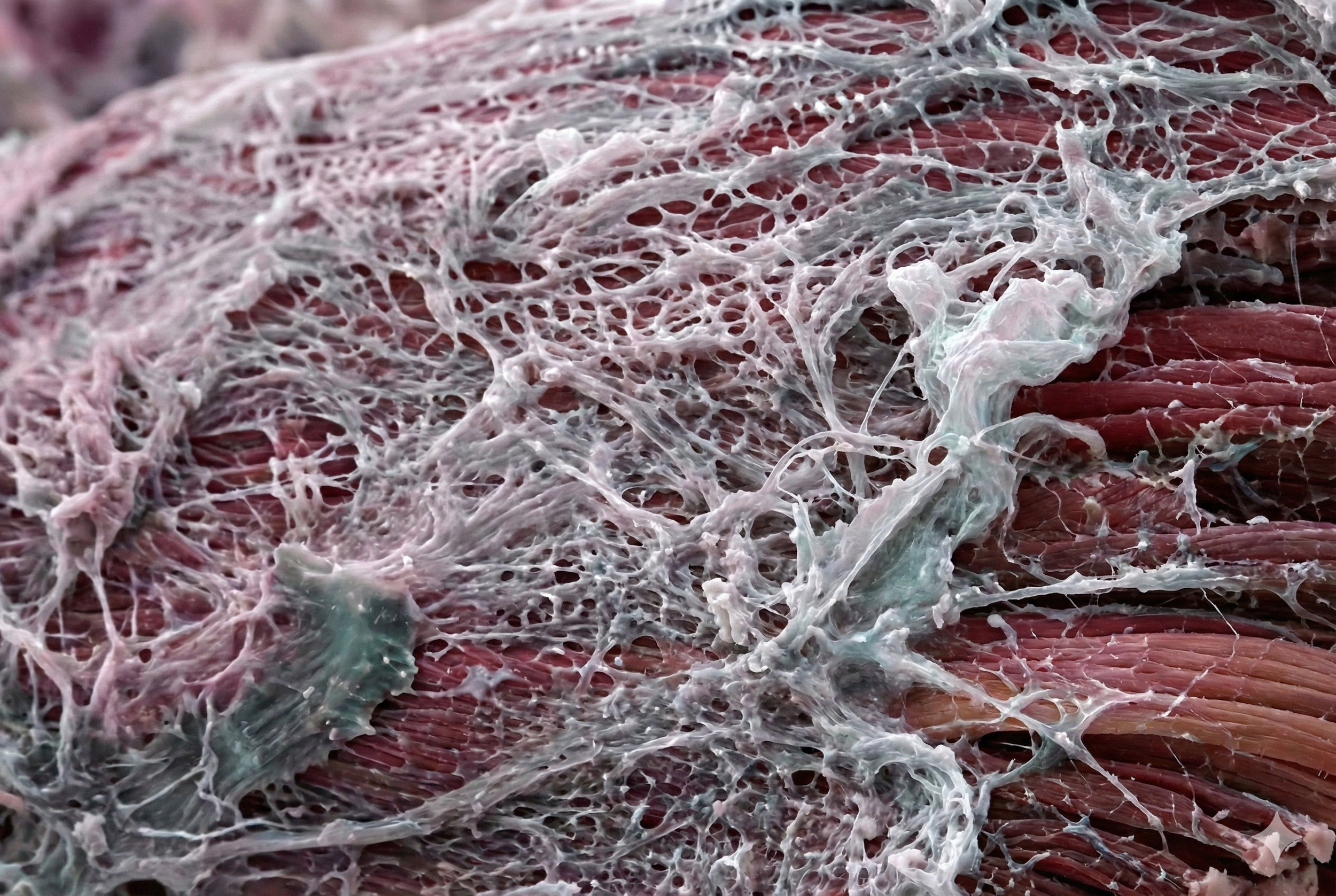
Blog
Our Latest Insights
Learn about how acupuncture and dry needling can help with everything from back pain, to physical symptoms of stress, and sports injuries.
Visit the Blogs By Body Region page to find articles categorized by section of the body.
Fascia vs Muscle
Learn the key differences between fascia and muscle, why “tight muscles” are often a myofascial issue, and what actually helps improve movement and reduce stiffness.
What is Fascia?
What is fascia and why does it matter for pain, stiffness, and movement? Learn how fascia works, how it differs from muscle, and why the myofascial system matters for recovery and performance.
Understanding Acupuncture’s Anti-Inflammatory Effects
Discover how acupuncture harnesses the autonomic nervous system, vagal pathways, and HPA axis to combat chronic and acute inflammation. Learn about key acupoints like ST36, ST25, SP6, SP9, GV14, GV20, LI10, PC4, and GB30 that help regulate cytokines, protect tissues, and support immune balance.
Understanding Acupuncture for Gastrointestinal Health
Learn how acupuncture balances autonomic pathways—especially the vagus nerve, hypothalamic nuclei, and spinal segments—to regulate digestion, reduce gut inflammation, and modulate gastric motility. Discover how points like ST21, ST25, ST36, ST37, GB34, PC6, BL21, GB30, LI11, and RN12 can improve gastrointestinal function.
Understanding Acupuncture for Cardiovascular Health
Learn how acupuncture targets key pathways in the brainstem and hypothalamus to regulate blood pressure, heart rate, and sympathetic tone. Discover how points like HT5, HT7, PC5, PC6, PC7, ST36, and ST40 can help maintain cardiovascular health.
Understanding Acupuncture for Analgesia
Explore how acupuncture alleviates pain through brain regions such as the amygdala (AMG), ACC, and PFC, while utilizing acupoints like BL25, ST25, ST37, ST36, GB34, PC6, SP6, and GB30.
Acupuncture’s Effect on the Autonomic Nervous System
Explore how acupuncture—encompassing dry needling and electroacupuncture—helps regulate the autonomic nervous system (ANS), improving cardiovascular, GI, and immune health.
Acupuncture for Anxiety
How to calm the nervous system and reduce anxiety. Learn what causes anxiety, common triggers and how acupuncture effectively relieves anxiety symptoms.
Meditation for Chronic Pain
Meditiation can be helpful for chronic pain and emotional regulation. Studies have shown that meditation can be as effective as medication for some people suffering from chronic pain.
Acupuncture for Stress
Acupuncture can be helpful in relieving stress and anxiety and is a common reason people seek acupuncture treatments. Learn more the physical symptoms and how acupuncture can help.
Acupuncture and the Nervous System
Acupuncture can help balance the nervous system to alleviate physical symptoms associated with stress. These symptoms can range from things like back pain, heart palpitations, digestive issues, pelvic issues, all the way to skin disorders and allergies, just to name a few.
Deep Breathing and the Vagus Nerve
Deep breathing helps activate the vagus nerve and gets us out of the sympathetic dominant “fight or flight response” associated with chronic stress and stress related disorders.











